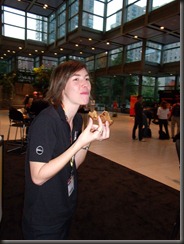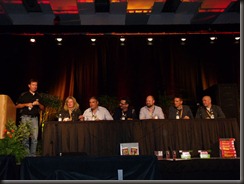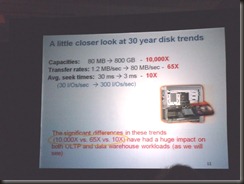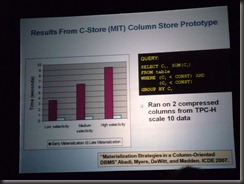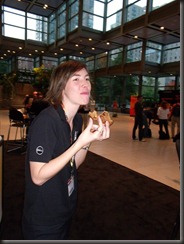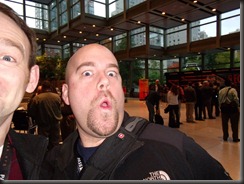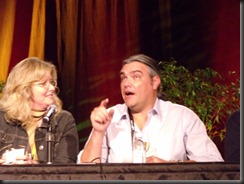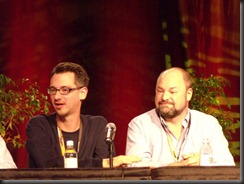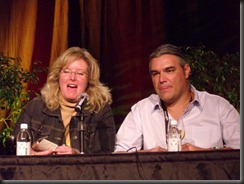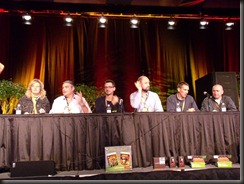SQL Pass session evaluations
I finally got the last of my PASS Summit session evals and so, like some other people, I thought I’d make them public.
Lies, damned lies and statistics (DBA-388-S)
This session went very well. I was comfortable with the material, it’s a topic I really like and in general it felt, to me at least, like a good session. The ratings seem to agree with that.
| Very Poor | Poor | Average | Good | Excellent | |
| How would you rate the usefulness of the session information in your day-to-day environment? | 1 | 7 | 36 | ||
| How would you rate the Speaker’s presentation skills? | 3 | 5 | 36 | ||
| How would you rate the Speaker’s knowledge of the subject? | 4 | 40 | |||
| How would you rate the accuracy of the session title, description, and experience level to the actual session? | 5 | 39 | |||
| How would you rate the amount of time allocated to cover the topic/session? | 11 | 33 | |||
| How would you rate the quality of the presentation materials? | 1 | 7 | 36 |
If I make Very Poor = 1 and Excellent = 5 then, averaging all the scores over all the questions, overall that session rated at 4.82/5
Not bad at all.
Edit: The overall PASS Summit session ratings are out and this session came in at 7th overall (all sessions including pre/post cons, all tracks) and 5th in the DBA track, behind only Buck Woody, Kimberly Tripp and Paul Randal I am extremely surprised to have come in that high at a conference like the PASS Summit.
Insight into Indexes (DBA-315)
This session was a whole different story. It did not go well at all, and I didn’t need the ratings to tell me that.
I wasn’t overly comfortable with the material. This is not to say that I didn’t know it, I did, but I wasn’t comfortable with it. In retrospect, I should have scrapped the entire presentation and done it over from scratch in a different way, even if that meant doing it the night before. Lesson learnt there.
To add to that, I broke my own rules for presentations. Usually I’m at the session room at least 5 minutes before the previous session finishes, with my laptop booted, the presentation loaded, management studio (and profiler if necessary) open and any pre-demo scripts already run. That way, as soon as the speaker who’s presenting in the session before mine finishes, I can get on stage, plug the laptop in, get the projector online and then relax.
In this case, I was late. The previous speaker had already left and my laptop was still switched off. Hence I rushed to get everything loaded and ready, and Windows, sensing the urgency, promptly crashed hard.
Cue 2 minutes of frantically trying to reboot laptop (it was ignoring all shut down requests) and load presentation onto the desktop in case my laptop didn’t reboot. All while the AV guy’s trying to get the audio on and the recording started.
Let’s just say it went downhill from there.
So, ratings for that one.
| Very poor | Poor | Average | Good | Excellent | |
| How would you rate the usefulness of the session information in your day-to-day environment? | 2 | 1 | 7 | 23 | 51 |
| How would you rate the Speaker’s presentation skills? | 5 | 29 | 50 | ||
| How would you rate the Speaker’s knowledge of the subject? | 1 | 11 | 72 | ||
| How would you rate the accuracy of the session title, description, and experience level to the actual session? | 1 | 4 | 31 | 48 | |
| How would you rate the amount of time allocated to cover the topic/session? | 6 | 31 | 47 | ||
| How would you rate the quality of the presentation materials? | 4 | 33 | 47 |
If I do the same averaging as for the first one, that comes out at 4.55. Not the worst I’ve ever had, though not by much. Lessons learnt.
